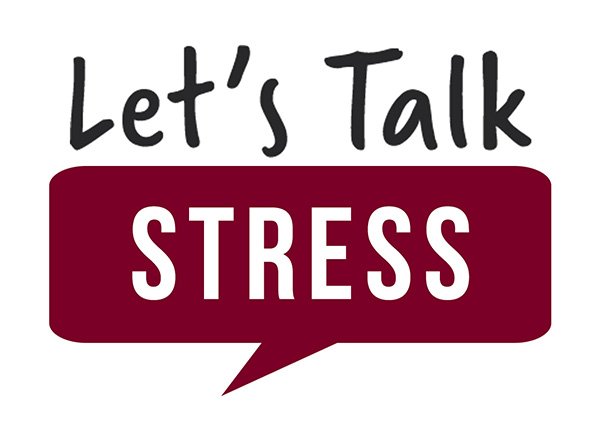We believe personal stress can be named and managed. We do this by being mindful, identifying negative thought patterns, and practicing positive self-talk to get us through challenges.
Our Philosophy
The Center for Student Wellness defines stress as the way we respond to and interact with our environment or an event that happens; how we perceive a situation. We focus on understanding what stress is , how stress affects us, and ways we can develop positive coping strategies; knowing over 80% of college students report experiencing high levels of stress. We acknowledge that people of different races, abilities, sexual orientation, gender, and other marginalized individuals experience stress in different ways. There can be stressors that are chronic, acute, and happen through the ripple effect; can be personal or non-personal struggles; or triggered by daily hassles. We believe personal stress can be named and managed. We do this by being mindful, identifying negative thought patterns, and practicing positive self-talk to get us through challenges.

Key Messages
Acknowledge that stress exists, what is in versus out of your control, and know it can be managed.
Monitor your moods, identify your stressors, signs and symptoms, and coping strategies.
Be mindful to identify and name negative thinking patterns, and practice positive self-talk to work through challenges.
Discover
What messages do you receive around caring for your mind? Listen to a variety of perspectives, from experts and peers, and consider how it relates to your experiences.
Hear from an expert
How to make stress your friend
Stress. It makes your heart pound, your breathing quicken and your forehead sweat. But while stress has been made into a public health enemy, new research suggests that stress may only be bad for you if you believe that to be the case. Psychologist Kelly McGonigal urges us to see stress as a positive, and introduces us to an unsung mechanism for stress reduction: reaching out to others.
More perspectives
Ted Talk: How to Stay Calm When You Know You’ll Be Stressed
Podcast: 12 Myths About Stress
Article: Self-Care for Your Stress Type
BC Blog: New Niche, Same Stress: School vs. COVID
This is My Brave: Ally
Explore
How do you care for your mind? Engage in these reflective activities to discover what works best for you.
Name it:
Perhaps you are feeling stressed because you are trying to fit 20 hours of work into a 16 hour day (after getting your 8 hours of sleep!). This is the classic stress equation - people are faced with too many demands and too little time. Take a step back and examine your calendar using this worksheet. Are the things you do every week necessary? Do they bring you joy and purpose? Perhaps there are things that you could cut out or ask for help with that you didn’t realize before. Try to eliminate one thing this week that isn’t truly fulfilling for you. This will minimize potential stressors and make it more likely that you will be able to meet your demands.
Plan for it:
What actions have you been putting off because you’re worried about what might happen? Time to conquer your fears. Read this article and complete the fear-setting worksheet. In the ‘Define’ column list out some of your biggest worries at the moment. In the ‘Prevent’’ column, write out what you might be able to do to prevent each thing from happening. In the ‘Repair’ column brainstorm things you could do to fix it if your worry came true.
Reframe it:
Since stress is a perception, we can perceive it as a threat or challenge. Turn a stressor or problem into a challenge: pick something that’s causing you stress and ask yourself how you can change the way you think about it. Read the common thought traps and identify where you may be getting stuck. How can you approach your stressor as a challenge/opportunity to learn and grow? What would you do differently? Write it down. Feeling creative? Use sticky notes to write down your reframed thoughts. Post them around your room in places you will see them everyday.
Live
What do you need to do to care for your mind (or body, or soul) and live well? Sign up to meet with a Wellness Coach to reflect on your current wellbeing and set goals that feel achievable to you.
Let's Talk More...
We want to help you find joy in your journey, wherever you’re at. We have many resources within Center for Student Wellness and throughout campus to continue this conversation—we’re here to listen, reflect, and help you set and achieve health goals that feel intuitive, sustainable, and balanced.
Meet with a Peer Wellness Coach
Engage in a conversation about your health and wellness goals related to caring for your body - in the areas of sleep and general health, body image and exercise, and alcohol and other drugs!
Visit bc.edu/wellnesscoach to schedule your Wellness Coaching session and learn about each type of appointment, or use the links below to sign up directly through google calendar.
Did You Know?
44%
of BC students rated their stress level as average or less than average
79%
of students use their friends and socializing as a way to help cope with stress
39%
of students use meditation or mindfulness activities to help lower stress levels

